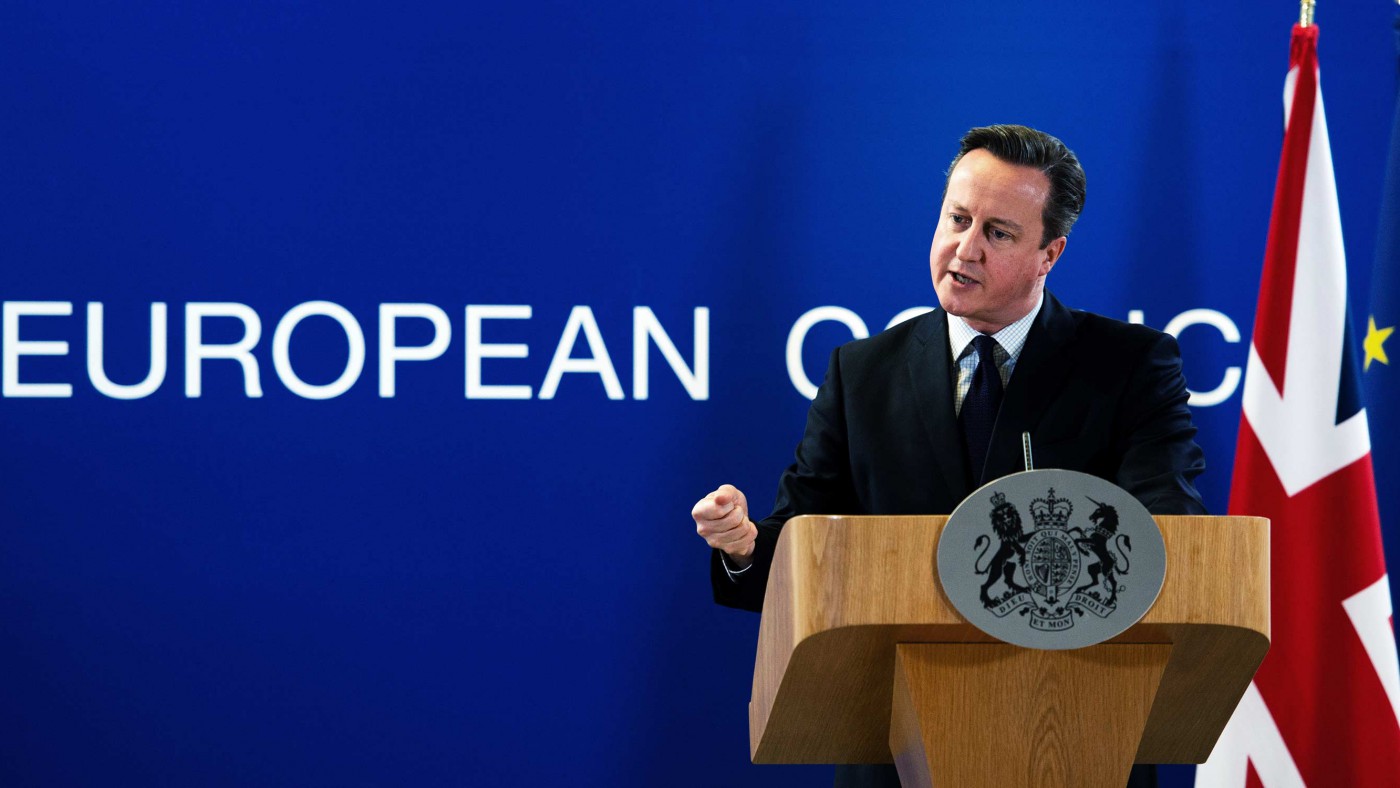Euro-integrationists are barely going through the motions. They’re not trying to pretend that anything important is being negotiated.
As David Cameron’s initial discussions in Brussels came to an end, I took part in a couple of broadcast debates. One was with a German Europhile called Daniel Gros, who was admirably frank. “The EU cannot change its nature just for one member”, he said, adding that watering down political union was “not up for discussion”. Watch the whole extraordinary interview here.
The other was on the BBC with a chap called Peter Wilding, who runs the main pro-EU lobby group, British Influence. Peter was, if anything, even clearer. The whole argument, he said, was “smoke and mirrors”. David Cameron had been touring EU capitals asking for a “manufactured row”, and the other heads of government were duly obliging him.
The question of benefits for migrants is, in itself, a bizarre one to have picked. I know of no Eurosceptic for whom welfare is the defining issue. Our concerns, rather, fall into two broad camps: independence (reasserting the supremacy of UK law, opting out of the Charter of Fundamental Rights and so forth); and economic freedom (fewer EU regulations, more liberty to trade with non-EU states etc). The PM had originally promised major reform in both these areas, but dropped them when it became clear that the EU was in no mood to change.
Even at the summit itself, attempts to confect a convincing argument were half-hearted. One Eurocrat told Reuters: “There’s a certain orchestration to make sure that tonight things work out well for David Cameron, to make it look as that he is winning, because no one wants a Brexit.”
The sham fight was foreseen so far in advance that it lacked all impact when it came. No observer, either in Britain or in Brussels, believed that there were circumstances where the PM might campaign for Brexit. And, in fairness, he has never claimed otherwise: that has been done in off-the-record briefings by aides.
The truth is that David Cameron was and is happy enough with the existing, unreformed EU. Not for the first time, his position was publicly enunciated by John Major, who declared that the renegotiation was more-or-less irrelevant, the real issue being in-or-out.
Major went on to warn that leaving the EU would have adverse economic consequences. Sound familiar? Here’s how he described leaving the ERM in September 1992: “The devaluer’s option, the inflationary option, a betrayal of the future of our country”. Four days later we left the ERM and embarked on 15 years of continuous low-inflation growth.
The past 48 hours have served to undermine the pro-Brussels crowd’s chief advantage, namely fear of change. Our species is risk-averse, as any behavioural psychologist will tell you. EU backers therefore deployed one argument above all others: however irritating the EU is, however expensive and corrupt and undemocratic, how can you be sure that leaving won’t be the riskier option?
Well, we can now see that staying is the risker option. Any hope of reforming the EU from within has gone. Even on the eve of a referendum in its second-largest economy, the EU is institutionally incapable of reform. As Angela Merkel puts it “We need a political union, which means we must gradually cede powers to Europe and give Europe control”.
Its leaders keep telling anyone who’ll listen that the EU is headed for economic, political, fiscal and military union. That’s what we’re signing up to if we vote to stay. That’s why the status quo is not an option.
If you’re on a bus, and it’s heading to a destination you don’t like, you don’t remain where you are by sitting motionless in your seat; you get off. That’s the choice we face in – it now seems likely – six months’ time.
June. I like the idea of June. It’ll be a nice time of year to hold our Independence Day parties in decades to come.


